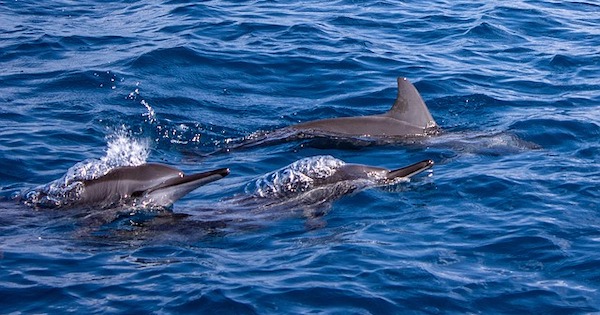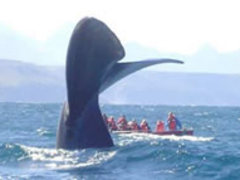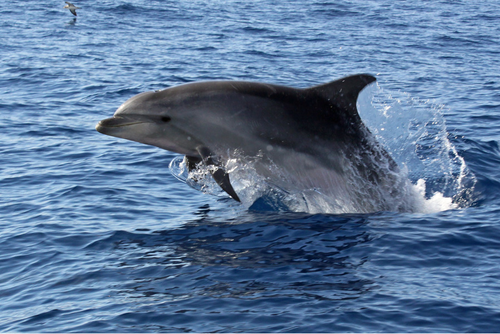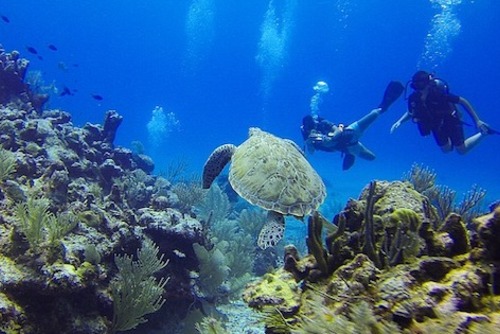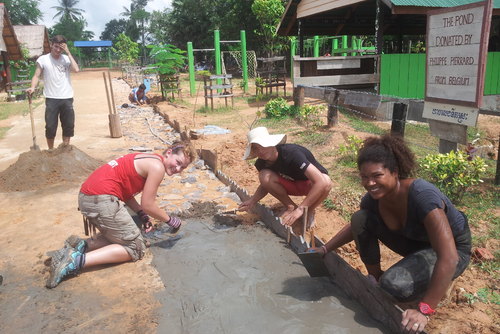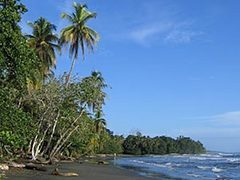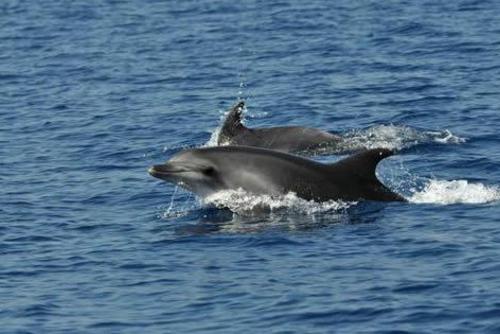Why the Need for Assistance
The Yangtze river dolphin has already been declared extinct whilst there are thought to be less than 100 of the Maui species alive in the wild.
Now there is the very real threat of extinction to the bottlenose and humpback dolphins due to pollution of the seas, climate change, loss of natural habitat, accidents with boats and being caught in fishing lines.
In Japan thousands of dolphins are caught and either slaughtered or sold to aquariums around the world for entertainment, this was recently brought to the worlds attention by the 2009 film 'The Cove' which highlighted the shocking practise of dolphin hunting.
Where You Can Volunteer with Dolphins
On our guide you can read more information about working with dolphins and also apply to play a vital role in the preservation of this beautiful species. You can choose programs all over world include places like:
- Australia
- Italy
- Greece
- Adriatic Sea / Dalmation Coast, Croatia
- Fiji
- Hawaii, USA
- Bermuda
- Plettenberg Bay, South Africa
- Cape Verde
- New Zealand
- Sychelles
On some voluntary programs you will get to live in paradise, for example close to the beach in Fiji which is one of the most popular destinations for volunteers. There are specific programs where you can help dolphins whilst on some you will get to work with all marine life e.g. porpoises, whales, sharks and sea turtles. Each location and project is different and so you will need to research all before applying.
Tasks & What to Expect
There are different activities which include:
- Monitoring the dolphins for various research purposes (i.e. behaviour, feeding, daily habits, reaction to humans, numbers, photos of dolphin pods)
- Monitoring tourist numbers (to get daily, weekly, monthly and seasonal figures)
- Monitoring tourist-dolphin interaction
- Research and monitoring of whales during whale season (June to October)
- Research and monitoring of coral reefs
- Research on women coastal activities such as bivalve collection, coconut husk burying and rope making and seaweed farming
- Monitoring of curio shell collection
- Assisting research students with their research
- Teaching English and other potential languages to the local tour guides
- Help develop and maintain a local resource centre in Kizimkazi with information on dolphins, whales, sharks and other types of fish; the local marine eco-system and local marine conservation. This resource centre is for tourists, schools around the island, locals and future volunteers
- Working with the Menai Bay Conservation Area office on various marine conservation and research projects
- Creating and running awareness campaigns and educational initiatives
- Integrate into a team and learning from more experienced members of staff about
- Fieldwork and research
- Take pictures and videos and then analyse these
- Identifying different species and counting numbers from underwater videos and pictures
- Monitoring animal behavior
- Sample water quality, checking reef health and help marine ecosystems
- Keeping up to date logs and journals
- Tracking and tagging dolphins
- Help outreach efforts educating local people, fishermen
- Beach clean ups
- Creating social media and website content raising awareness
- Sometimes you will be out in the ocean on a boat/small research vessel whilst other times you might be on land monitoring from the shore
- You might get to go scuba diving or swimming and get close to the dolphins - an unforgettable experience
Working Hours
Generally you will be required to work 5 days a week Monday - Friday from around 8:30 a.m. to 4.00 p.m. but this might vary from day to day. If you don't want any days off there are always more tasks you can do. Flexibility and adaptability will be required and you will get lots of free time off to enjoy your surrounds, join an excursion or just relax. Most of the time you will be working with other members of your team, usually locally employed staff and other international volunteers but there will be occasions when you will need to work independently.
Accommodation
When participating you will usually be provided accommodation, sometimes this can be a hostel style shared room with other staff or there also homestays available. You might have the option to book have a private room or even be able to book hotel/hostel room separate at your own cost.
How to Apply
You will usually need to pay your own air fare whilst some organisations charge a fee to participate, this includes placements, accommodation, meals and in-country support. This also should include a donation which helps keeps organisations running throughout the year, most are run on little budgets with no external funding other than donations. If you live in Europe you might like to join a placement in Greece, Croatia or Italy helping the famous bottlenose dolphin, this will save the cost of a flight to somewhere like South Africa or Fiji.
Eligibility
- Most projects will require you to be aged 18 and over
- No previous experience is needed unless you are looking for a skilled / paid position
- There are short and long term opportunities, so if you are planning a two week holiday or would like to commit for longer there should be placement for you.
- You will need apply well in advance of the date you would like to join as usually the team numbers are not huge and spaces can fill up quick
- These projects are open to everyone - individuals, families, groups, students, non students, career breakers and anyone with a willingness to make a different and help
- If you are looking for marine biology work experience these programs are a perfect way to learn and gain hands on work experience
Dolphin Volunteer Program Reviews
Wondering what it is like to help dolphins abroad? Read past participant testimonial below:
By participating in the dolphin census project in the northern Aegean Sea off the coast of Greece allowed me to reconnect with an aspiration I have had since I was a child: marine biology. In a gorgeous setting I had the opportunity to accompany biologists in the field, follow their work methods and feel their passion for their research topic: the beautiful marine fauna of the region. The great professionalism and personal commitment I met at all levels of MOm's work impressed me: at the scientific level (project conception, data collection and processing), in the communication work and the awareness-raising, the inventiveness at fundraising and the conviction of the volunteers from a variety of backgrounds.
The fieldwork consisted in systematically sailing around and scanning the horizon to locate dolphins. When we met some of them, their exact positions and the constitution of the group were identified and each individual was photographed, if possible from both flanks. After a few hours at sea, work continued in MOm's office: I helped sort the pictures we made at sea and match the left and right flanks of each individual to begin with the database that would allow getting a precise picture of the mediterranean dolphin populations situation and developing conservation strategies. The combination of fieldwork and data processing gave me a good understanding of MOm's work. Furthermore, I received explanations and got to see movies about the broader ecological conditions and about the socio-economic reasons underlying this situation. Thus a very comprehensive approach.
Last but not least: I had a great time discovering not only the beautiful island of Alonissos, with its old village, its beautiful beaches, its breathtaking views and its surroundings, but also a very welcoming, warm-hearted and open people. MOms collaborators, very friendly, showed me around the place and introduced me to the local nightlife and delicious food ;). I even had the chance to discover a little bit of Athens with them. MOm's work and the Northern Aegean Dolphin Project are awesome and I can only encourage you to support them with your participation or a financial support !
- From a past participant on the “Northern Aegean Dolphin Project”, Mom/Alonissos in Greece.
Other Ways to Help
There are also other ways to help other than volunteering, you could:
- Donate to wildlife organisations
- Raise awareness of the plight of dolphins in countries like Japan via social media websites like Twitter
- Do not visit aquariums & aquatic parks which use captive mammals like dolphins
- Watch the film Blackfish and encourage others to rent or buy it
Related Pages

